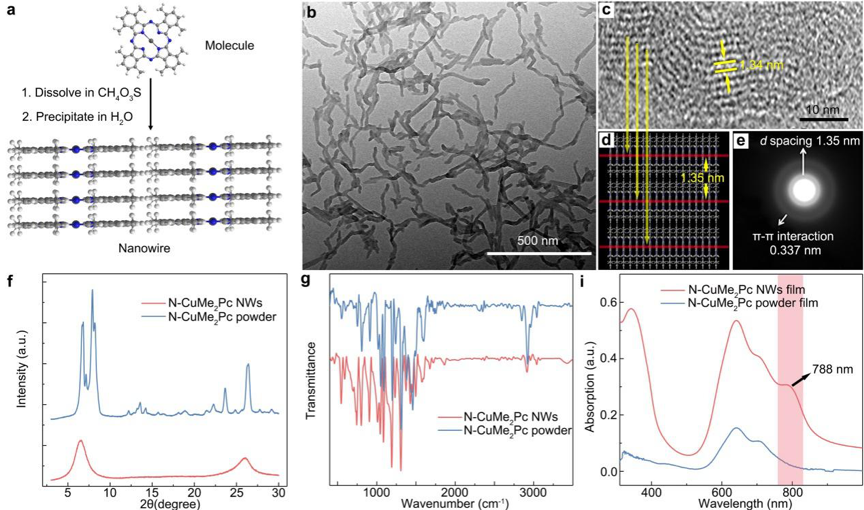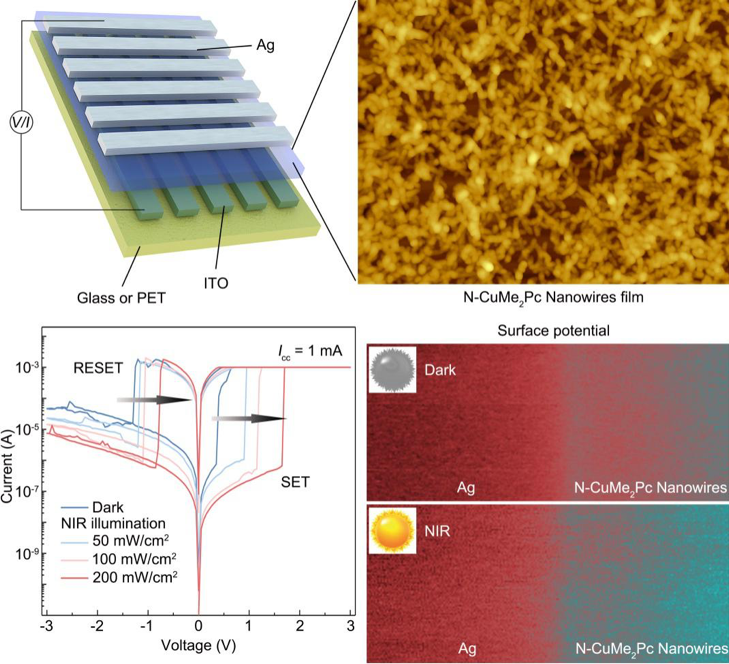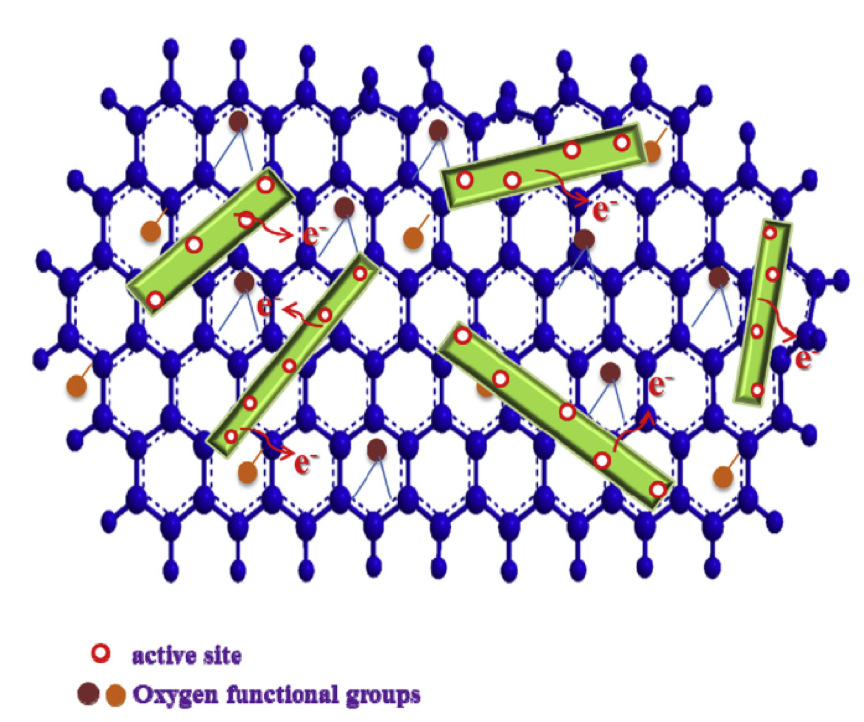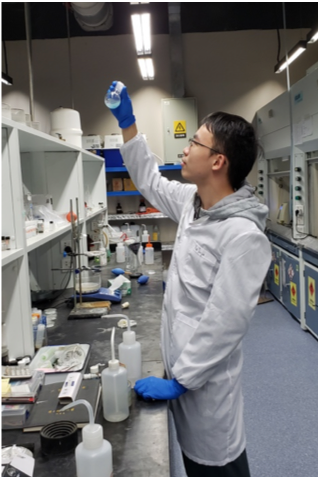SUSTech undergraduate published in two renowned journals
2019-01-08
Late last year, Hu Qikun the 2016 undergraduate student in the Department of Chemistry at Southern University of Science and Technology (SUSTech) was published in “Advanced Electronic Materials” and “Electrochimica Acta”, both of which are internationally renowned journals in electronics and electrochemistry. Hu Qikun studies in Professor Xu Zongxiang’s research group within the Department of Chemistry at SUSTech.
The paper published in Advanced Electronic Materials was titled “Organic Memristor Utilizing Copper Phthalocyanine Nanowires with Infrared Response and Cation Regulating Properties.” Hu Qikun is the co-first author, and Xu Zongxiang is the co-corresponding author. Xu Zongxiang’s research group investigated the preparation and formation mechanism of the core material of metal phthalocyanine nanowires in this work. Xu Zongxiang’s research team collaborated with Shenzhen University professors Zhou Ye and Han Suting, who completed the construction and testing of the memristor.

Metal phthalocyanine nanowire
When researchers in Hewlett-Packard developed nano-memristor devices for the first time, a research boom was triggered in the field of memristive research. This has made non-volatile random-access memories possible and was superior to conventional random-access memory in many ways.
Memristors are the best ways to implement artificial neural network synapses in hardware. It has also contributed to secure communication. However, current organic memristors have poor stability, unclear working mechanism, and weak infrared response. Therefore, the researchers hoped to improve organic memristors in these specific areas.
Phthalocyanine is a low cost small molecular semiconductor material which has an excellent photoelectric feature, but it has poor solubility in conventional organic solvents. It has poor performance and further restricts applications in organic memory resistance.
Based on its molecular design, Xu Zongxiang developed metal phthalocyanine nanowires with high dispersive performance in conventional organic solvents. Using this solution to produce a film that has good infrared response properties, they have built organic memory resistors. Their device is the first reported organic memristor with high stability and strong infrared response.

Organic memristor
The paper in Electrochimica Acta was titled “Synthesis of N-CuMe2Pc nanorods/graphene oxide nanocomposite for symmetric supercapacitor electrode with excellent cyclic stability.” Hu Qikun is the co-first author, while associate professor of the Department of Electronics and Electrical Engineering Wang Fei and associate professor of the Department of Chemistry Xu Zongxiang are both co-corresponding authors.

Transport mechanism of charge on composites
Energy has become an indispensable part of people’s daily life, and electronic devices with high energy storage and quick charge/discharge characteristics are increasingly desired. Supercapacitors are a new type of energy storage device between conventional capacitors and rechargeable batteries. However, current supercapacitors have poor cyclic stability and are limited by their operating voltage window, further hindering their commercial viability.
Xu Zongxiang’s research group combined phthalocyanine nanomaterials with graphene oxide in order to develop nanocomposites with strong electrochemical activity and easy preparation. The composite material has shown strong energy storage capacity as electrodes in supercapacitors. It has also maintained 100% charging-discharging capacity through thousands of cycles, laying a solid foundation for the application of the next generation of supercapacitors.

As a productive researcher, Hu Qikun believes that it is not talent that can result in many papers, but diligence. This is true for all other researchers who write many papers. In his opinion, his papers reflect his persistent efforts and hard works over the past two years of scientific research. He loves his experiments and has arranged his life around them. While some people may find this lifestyle boring, but Hu Qikun loves it because he can do what he loves. Hu Qikun is also sure that his future achievements will be just as fruitful as his previous achievements. He is now preparing for summer exchanges overseas and applying for further study at the end of the year.
Paper link:
https://onlinelibrary.wiley.com/doi/10.1002/aelm.201800793
https://www.sciencedirect.com/science/article/pii/S0013468618328846?via=ihub




